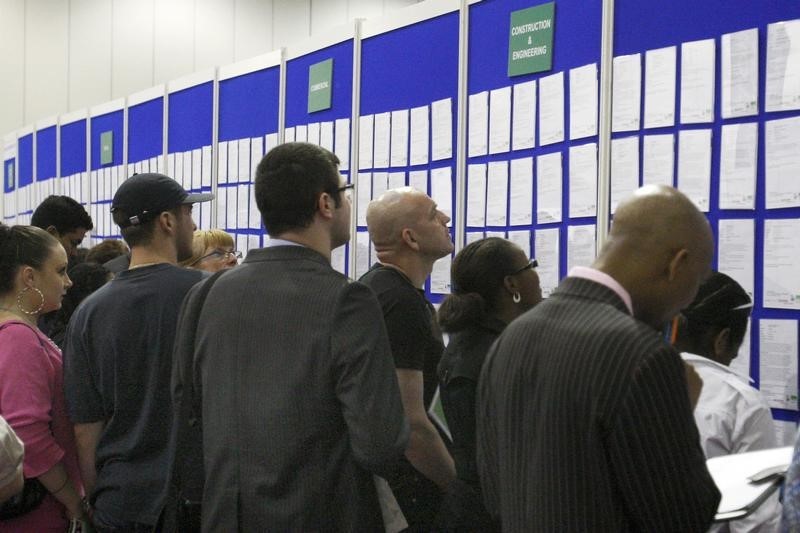Gold prices set for weekly gains on dovish Fed outlook; silver near record high
LONDON (Reuters) - British wages rose more than expected in the three months to January, official data showed on Wednesday, offering a glimmer of hope that the slowdown in wages in late 2015 has bottomed out.
Britain's unemployment rate remained steady at a 10-year low of 5.1 percent, as expected, for the third consecutive month.
Wage growth in Britain has failed to match the rapid fall in the unemployment rate as the economy recovered, puzzling central bank officials, who wanted to see a stronger pick-up in earnings before deciding to raise interest rates.
Pay growth remains below pre-crisis levels and is unlikely to rise sharply this year, given a slowing economy which faces a vote on its membership of the European Union in June and a weakening global economy.
The sluggish pick-up in wages also underscores the challenge the government faces to raise enough revenue to meet this year's budget deficit target and to achieve a budget surplus by the end of the decade.
Britain's Chancellor George Osborne will deliver the country's annual budget later in the day.
Total earnings of workers -- including bonuses -- rose 2.1 percent on the year in the three months to January from 1.9 percent in the fourth quarter and versus a forecast of 2.0 percent in a Reuters poll.
For the month of January alone wages jumped 2.5 percent, the biggest rise since August, after a 1.7 percent rise in December. The Office for National Statistics said this could be due to changes in the timing of bonus payments in the financial services sector.
The BoE had estimated that wage growth would be 1.75 percent in the fourth quarter of 2015 and rise to 3 percent by the end of 2016, though past BoE wage forecasts have usually proved too optimistic.
Earnings excluding bonuses wages were 2.2 percent versus 2.0 percent in the last three months of 2015 and against a forecast of 2.1 percent.
Total wages in the private sector, which are monitored closely by the BoE, rose by 2.3 percent compared with 2.1 percent in December.
